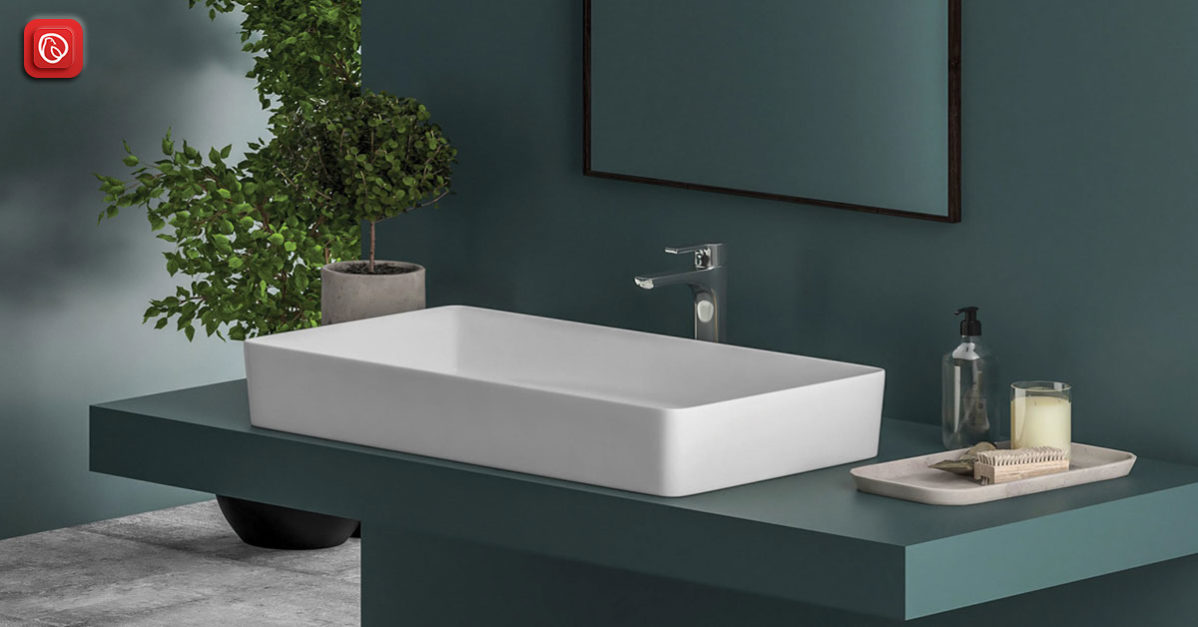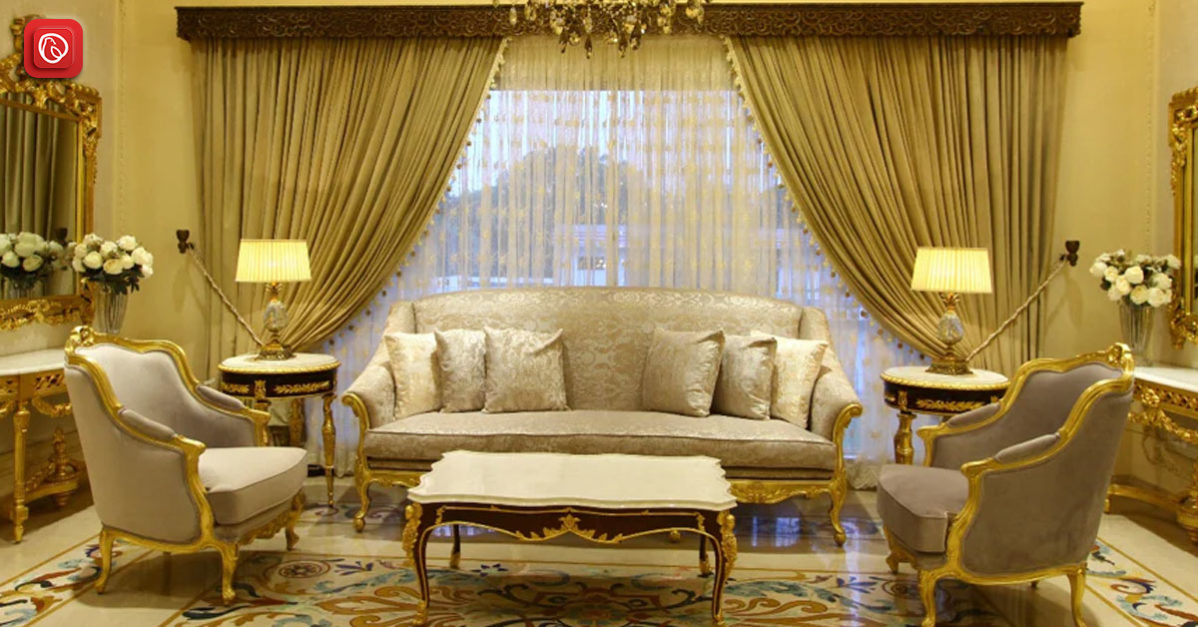Choosing the right type of flooring that complements the ambiance of your space is always a head-scratcher. PVC (Polyvinyl Chloride) flooring is a household name when you are mulling over the different varieties of floorings.
Graana.com, Pakistan’s smartest property portal, features everything you need to know about PVC flooring.
What is PVC flooring?
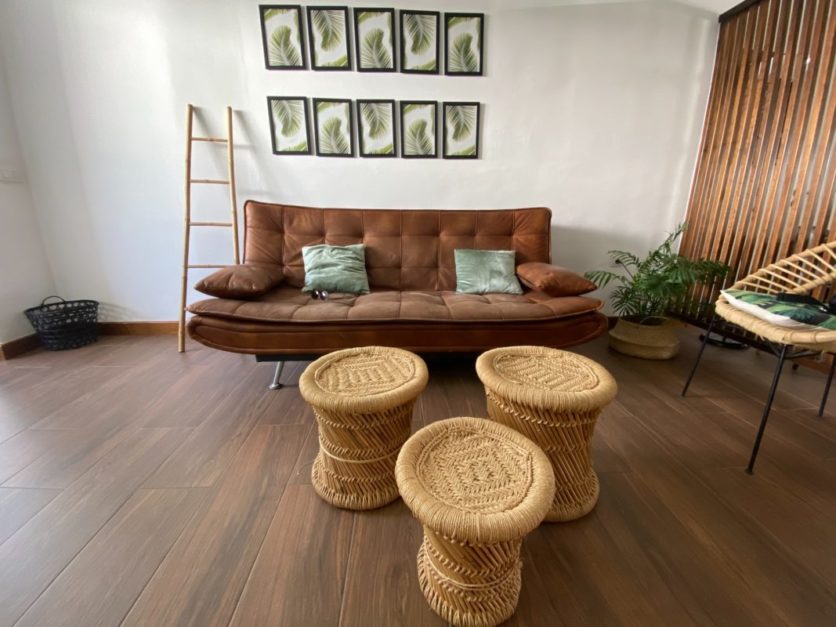
Also known as PVC Vinyl flooring, it is made of synthetic plastic polymer Polyvinyl Chloride. One of Pakistan’s most en vogue floorings, it is renowned for its durability and temperature resistance.
They come in plausible ranges, all having different characteristics that suit their users according to their demands.
Types of PVC flooring
PVC flooring has a lot of different variations, some of which are discussed below in greater detail.
Sheet Vinyl Flooring
Sheet Vinyl has been in use for a long time now and comes in the form of large sheets that can be cut according to the customer’s requirements.
Sheet Vinyl Flooring is available in different textures and has a smooth underlayment. It is preferable to glue the flooring using the manufacturer-recommended adhesive for best results. Custom-made vinyl sheets may cost more than the standard designs.
Uses of Sheet Vinyl Flooring
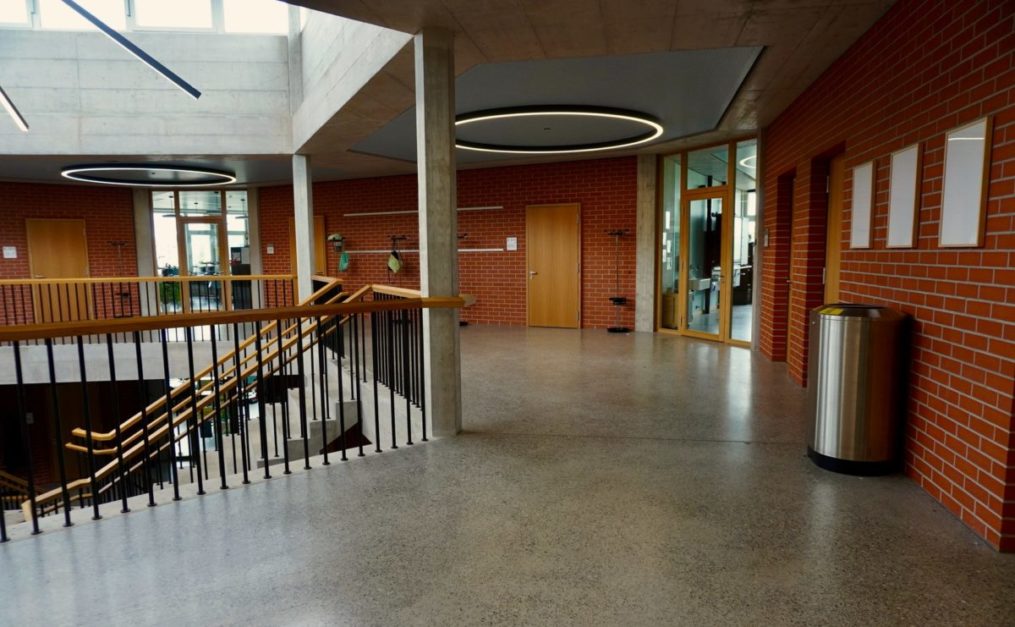
· It sees its application in kitchens and bathroom floors due to its waterproof properties.
· The reversible closed-cell foam backing makes it flexible, rendering it a good choice for sports and dance floors.
· It can also be used to cover rough surfaces like concrete and make temporary or permanent dance floors.
Vinyl Plank Flooring (LVP)
The vinyl plank flooring is available as separate pieces that bear a resemblance to real hardwood planks. The texture, appearance, and patterns are similar to that of hardwood and on top of that, it is a cheaper option.
Vinyl plank flooring comes in various types that add to the warmth and style your place needs. The Rigid Core planks provide a finer experience to walk on as compared to the flexible type.
The rigid core vinyl planks are further categorized into a wood composite which gives a softer underfoot experience, engineered planks that are more water-resistant, and stone-composite planks that have higher durability.
PVC Vinyl Composition Tile
It is the finished form of vinyl tiles that sees its use in commercial applications. The 12” by 12” or 12” by 24” squares are shaped into rectangles that are glued to a smooth subfloor using a special adhesive.
The tiles are popular for being inexpensive, durable, and easy to maintain. They are also robust and any damages can be fixed via chemical and mechanical means.
They come in a multitude of shapes, sizes, and textures and are easy to remove or replace if properly installed initially. The vinyl composition tiles are broadly categorized into two types based on differences in their textures and sizes.
Luxury PVC Vinyl Tiles
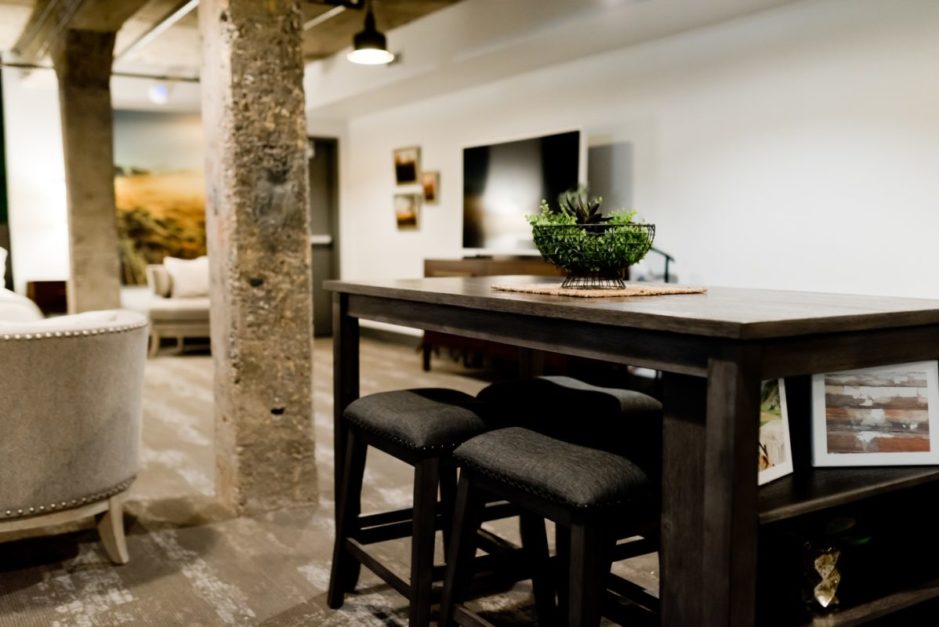
Also known as simply vinyl tiles, they have an extra layer of protection on them that is coated with UV-curated urethane which makes them resistant to scratch and stain marks. The term is sometimes exclusive to products that resemble stone, ceramic, or wood.
PVC Tiles
It is the more common type used especially because it comes in smaller sizes of 150mm, 225 mm and 305 mm, making it easier to remove and replace. The tiles are composed of polyvinyl chloride and fibre which adds to their rigidity. However, if it is not glued to a smooth subfloor, it can wear off under high pressure.
Pros of PVC Vinyl Flooring
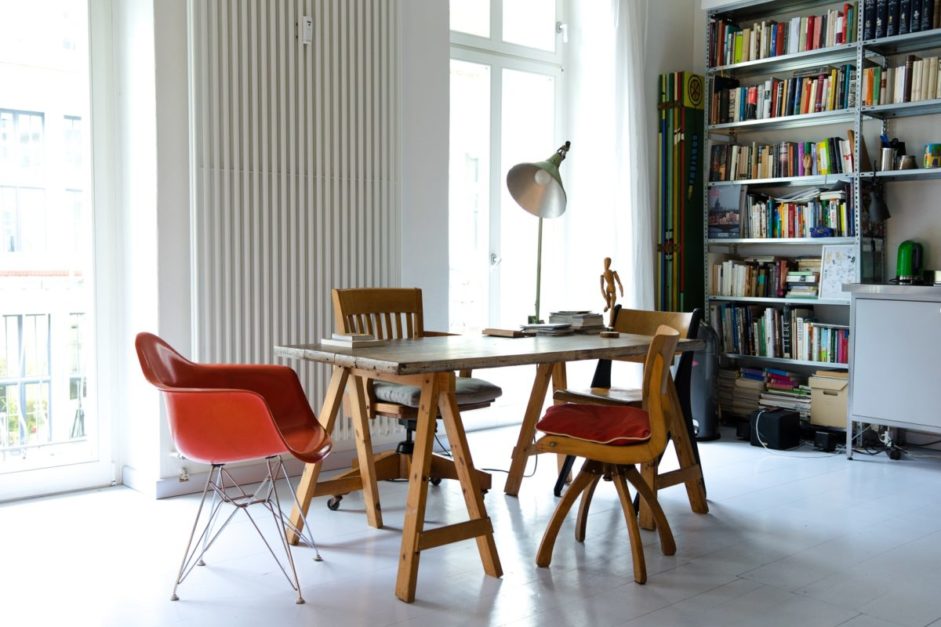
PVC flooring is a very interesting material that has a lot of advantages when it comes to flooring and some of those are explored in greater detail below.
Cost
For customers who are on a budget, PVC flooring is the best option available. The vinyl planks and tiles can give a similar hardwood, ceramic or stone feel but at a much lower price. The homogeneous vinyl tiles cost around PKR 105 per square foot according to the Marflex group.
Easy Installation
The PVC flooring can be glued to any surface such as concrete or wood. using recommended adhesives. Due to the ease of installation, you can easily DIY the tiles at your home which further saves you money.
Easy Maintenance
The vinyl floorings are low maintenance and only require regular day-to-day mopping and cleaning to keep their condition intact for longer periods. This is further aided by the fact that the PVC floorings are water-resistant too.
Durability
Once the flooring is coated with a liquid emulsion, it can withstand normal pressures as well as chemical exposures easily. You can also get prolonged use out of them with only basic maintenance. The water-resistance properties and layered structures further add to its durability.
Cons of PVC Vinyl Flooring
As with all materials, there are drawbacks that need to be kept in mind when it comes to choosing PVC as a flooring material for your home.
Quality
As the demand for these floorings is on the rise, there are higher chances of substandard products being sold by the manufacturers. This is the reason that the buyers should be aware of the different types of PVC floorings available and the characteristics of each to make a fully informed decision.
Environmental Concerns
It is not feasible to dispose of the synthetic plastic polymer as it adds to your carbon footprint. This can be countered by prolonged use to minimize the disposal but that does not make it the best option. Also, petroleum is used in the making of vinyl which is a non-renewable source and adds to the release of toxicants into the environment during manufacturing.
Wear and Tear
Prolonged uses can lead to faded colors on exposure to sunlight, scratches and stain marks, and folded cuts, especially on shallow edges that also cannot resist high pressures. Only the highest quality PVC floorings are durable enough to last for up to 10-15 years.
How to Install PVC Flooring?
You can easily DIY the PVC floorings in your space given the right precision.
Prerequisites and Resources Required
· PVC Coating Roll
· Specially formulated PVC adhesive
· Pencil and Ruler
· Tape
· Paper Cutter
· A Toothed Rack
· A Knife Rub
· A Rolling Roller
Step 1 Installation
The surface that the flooring will be glued on must be clean and smooth. The PVC coating must cover every part of your floor and some portion at the bottom of your walls (approximately 5 cm).
Step 2 Sticking the Flooring
The coating will be covered with the adhesive in circular shapes portion by portion for a more refined look. Leave the adhesive on for up to one hour or as directed on the packaging.
Once dry, start placing the tiles, planks, or sheets. To avoid any bubble formation, you can flatten out the glue layer or use a knife rub starting from the center down to the edges.
Step 3 Final Finish
The spare pieces of flooring can be installed on the walls to give a completed and finished look. The same procedure as the floor installation will be followed and the spatula will be used to carefully and precisely place the tiles or planks on the walls.
Leave the entire flooring unused and untampered for at least 2 days to ensure the glue has dried completely before rearranging the accessories on it.
Choosing the Right Thickness for your Space
For the areas that are not used throughout the day such as offices and bedrooms, a PVC flooring of thickness between 0.12 and 0.15 mm is optimum. For the frequently used rooms such as the lounge or staircases, a larger thickness of around 0.15-0.25 mm is feasible.
For extremely high use and dense areas such as kitchens or lobbies, the PVC flooring must be really thick to withstand pressures. A reasonable range would be between 0.25 and 0.30 mm.
PVC Flooring vs Other Types of Flooring
Vinyl flooring is moisture and heat-resistant as compared to laminate flooring. However, laminate flooring is made of natural substances which makes it more environmentally friendly.
The plastic in PVC vinyl flooring allows it to insulate well to any seasonal changes. The PVC flooring is also easy to maintain and comes at affordable prices which is a downside in the case of wooden flooring. Wooden flooring is also susceptible to people of specific taste and is not widely used by all consumers especially due to termite attacks and water-logged lands.
Marble flooring is another renowned choice but due to its high price range, it is not affordable to all consumers.
The anti-static and anti-skid types of PVC flooring have made it an even more popular choice amongst consumers, especially for high traffic and moist areas. According to the Marflex Group, an anti-skid PVC flooring price is approximately PKR 135 per square foot.
Is PVC flooring safe?
The only matter of concern is the VOCs (Volatile Organic Compounds) as long exposures to these chemicals can cause respiratory issues. These toxicants are already present in some of our daily use products.
The PVC flooring comes with a multitude of benefits and drawbacks just like any other product. General awareness of all types is crucial to help make an informed decision that the buyer does not regret later. For more information, visit Graana.com.
FAQs
Here are some FAQs related to PVC vinyl flooring
What is PVC vinyl flooring?
PVC vinyl flooring is a synthetic flooring material made from polyvinyl chloride (PVC) resin and other additives. It is known for its durability, water resistance, and versatility.
Is PVC vinyl flooring suitable for residential use?
Yes, PVC vinyl flooring is commonly used in residential settings. It offers a wide range of styles, colors, and patterns to suit different interior design preferences.
Can PVC vinyl flooring be installed in wet areas such as bathrooms and kitchens?
Yes, PVC vinyl flooring is highly resistant to water and moisture, making it suitable for installation in wet areas such as bathrooms and kitchens.
Is PVC vinyl flooring easy to maintain?
Yes, PVC vinyl flooring is relatively easy to maintain. Regular sweeping or vacuuming, along with occasional damp mopping, is usually sufficient to keep the floor clean.
Can PVC vinyl flooring be installed over existing flooring?
In many cases, PVC vinyl flooring can be installed directly over existing flooring, such as concrete or tile. However, it is important to ensure that the subfloor is smooth, clean, and level before installation.
Is PVC vinyl flooring suitable for commercial use?
Yes, PVC vinyl flooring is widely used in commercial spaces due to its durability and resistance to heavy foot traffic. It is commonly found in retail stores, offices, healthcare facilities, and hospitality establishments.
Does PVC vinyl flooring require professional installation?
While professional installation is recommended for achieving the best results, PVC vinyl flooring is available in various installation methods, including click-lock systems and adhesive-backed options, which can be suitable for DIY installation.
Is PVC vinyl flooring environmentally friendly?
PVC vinyl flooring has improved in terms of environmental impact over the years. Look for products labeled as low VOC (volatile organic compounds) and those that meet recognized eco-certifications for a more environmentally friendly option.
How long does PVC vinyl flooring typically last?
The lifespan of PVC vinyl flooring depends on various factors, including the quality of the product, maintenance, and foot traffic. On average, well-maintained PVC vinyl flooring can last for 10-20 years or more.
Can PVC vinyl flooring be used with underfloor heating systems?
Yes, many types of PVC vinyl flooring are compatible with underfloor heating systems, providing comfort and warmth in colder seasons. However, it is essential to follow the manufacturer’s guidelines for installation with underfloor heating.


